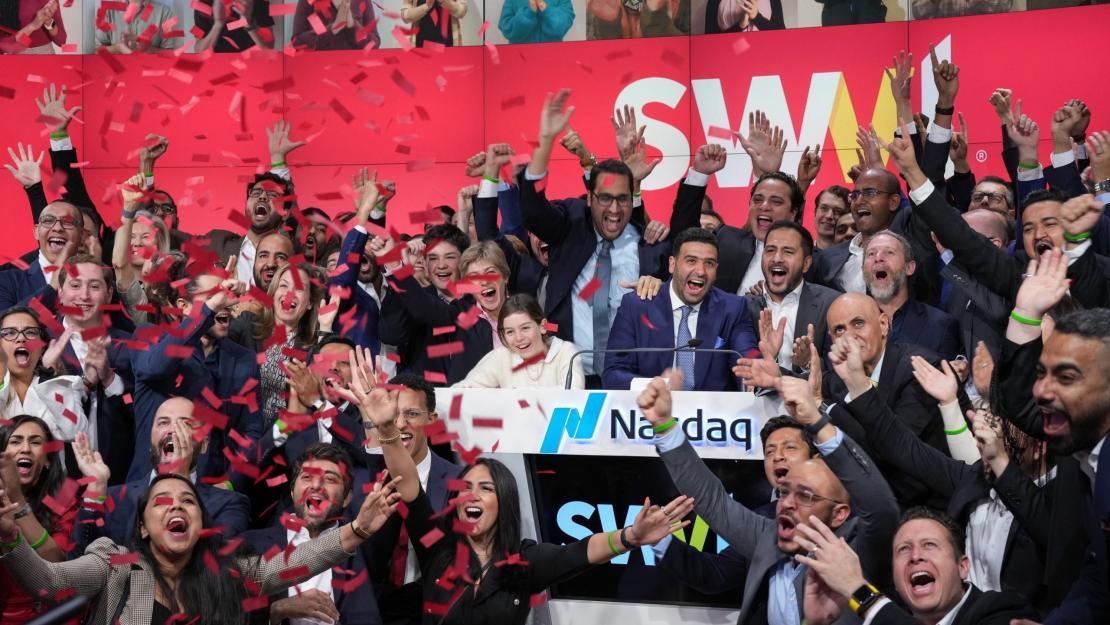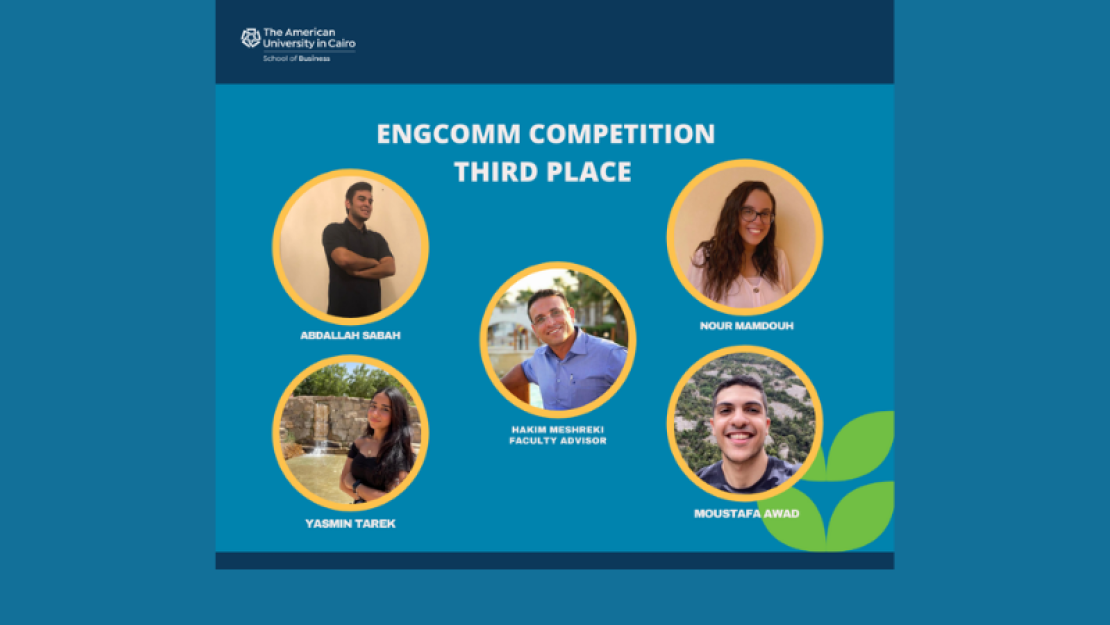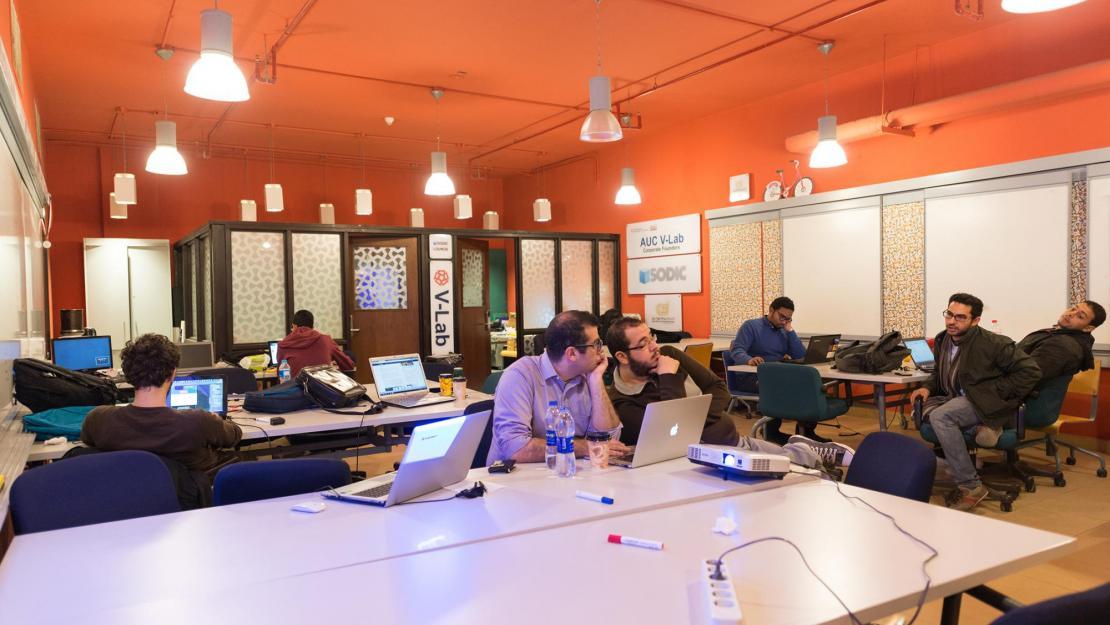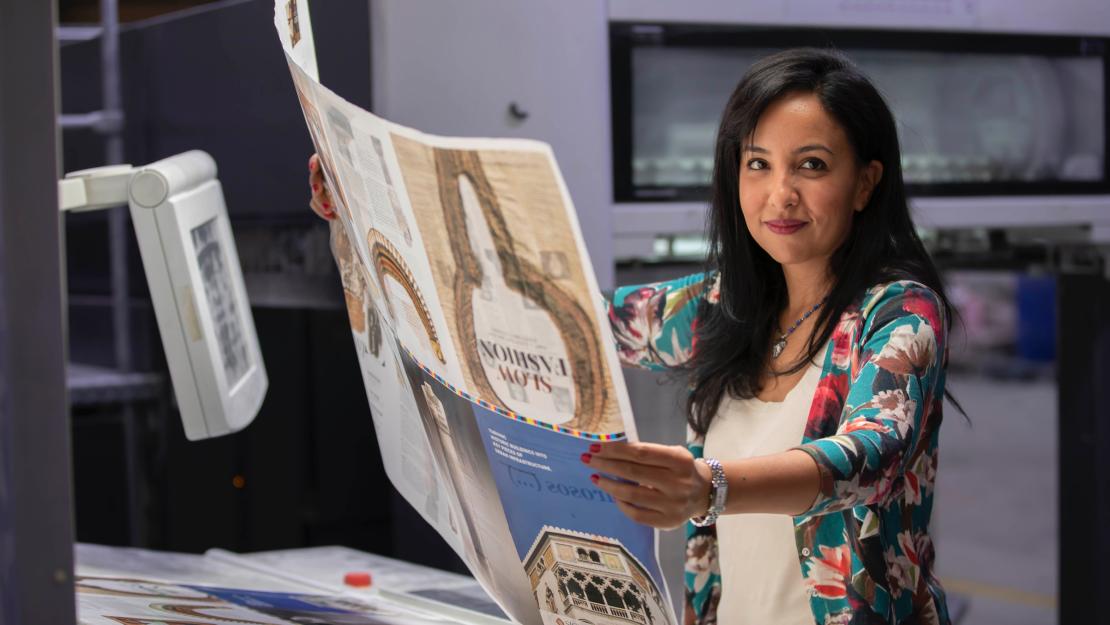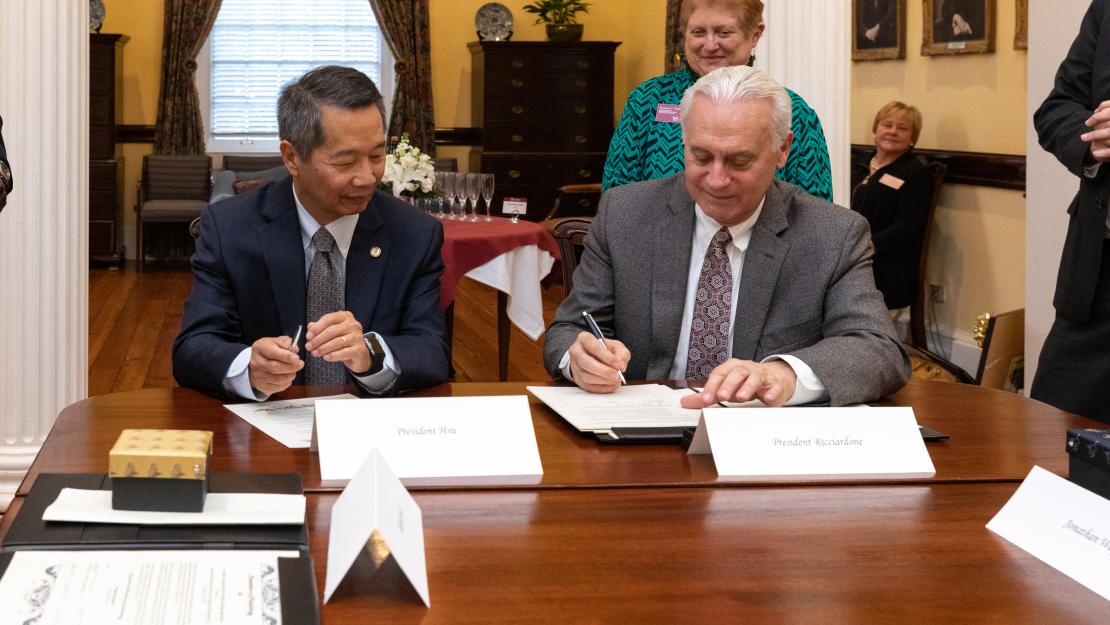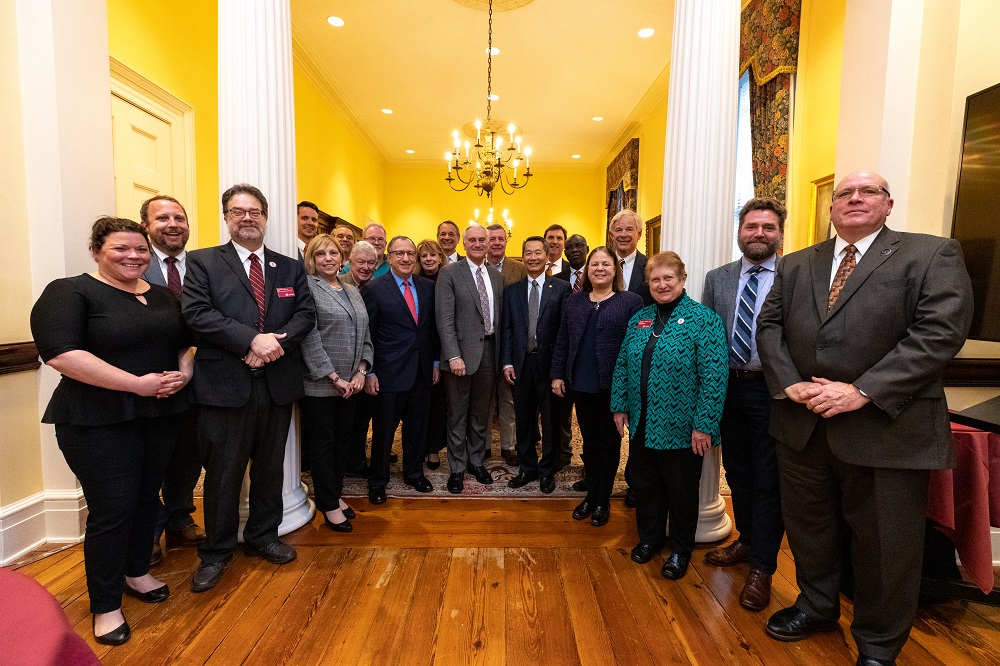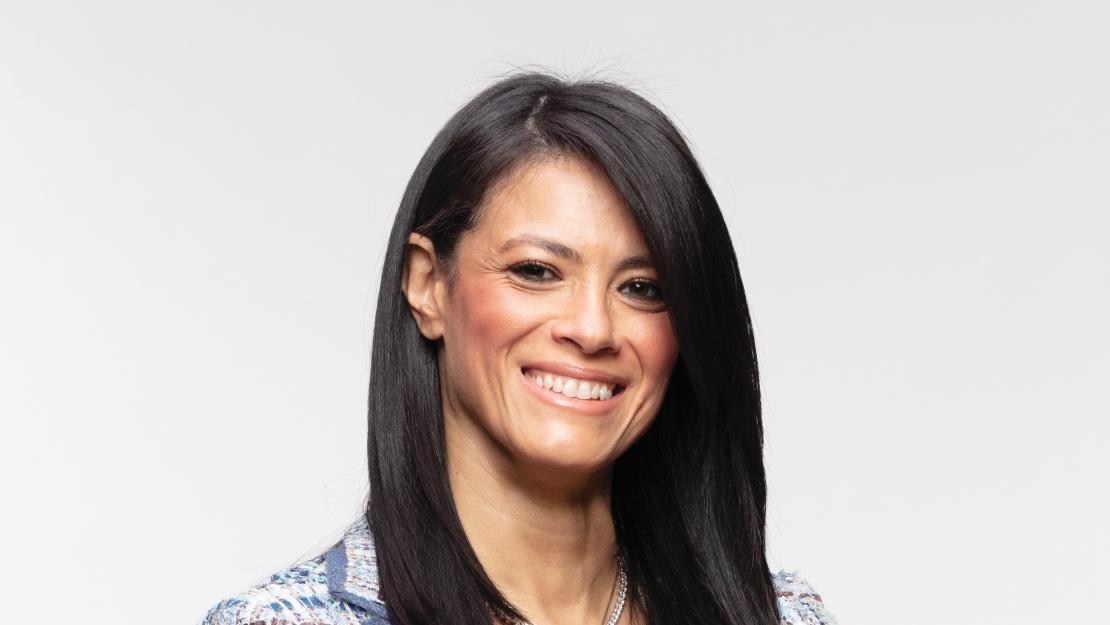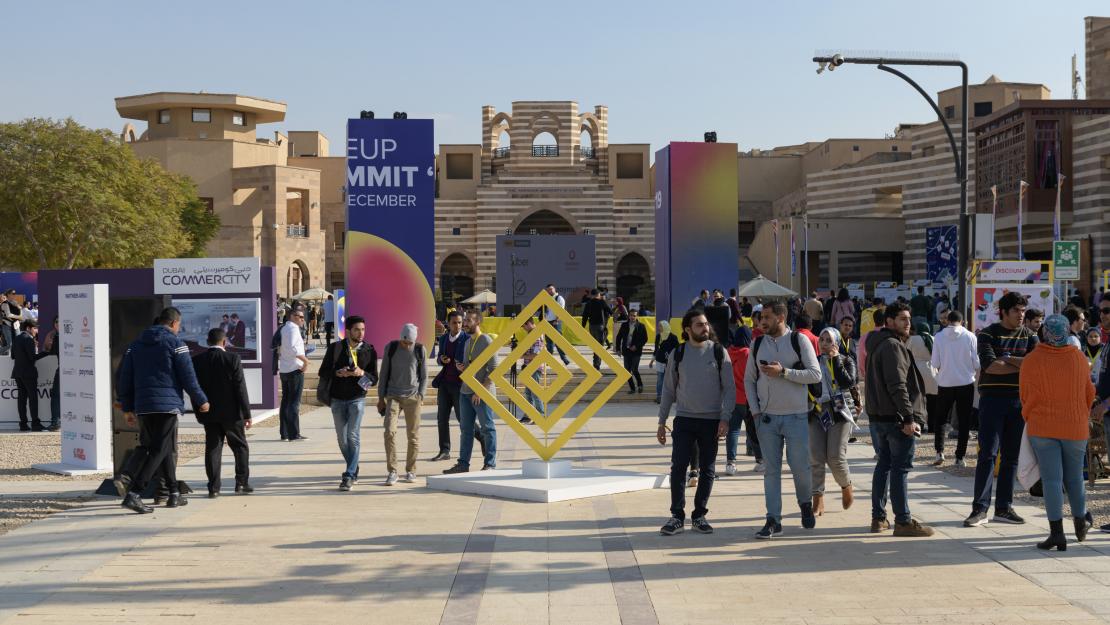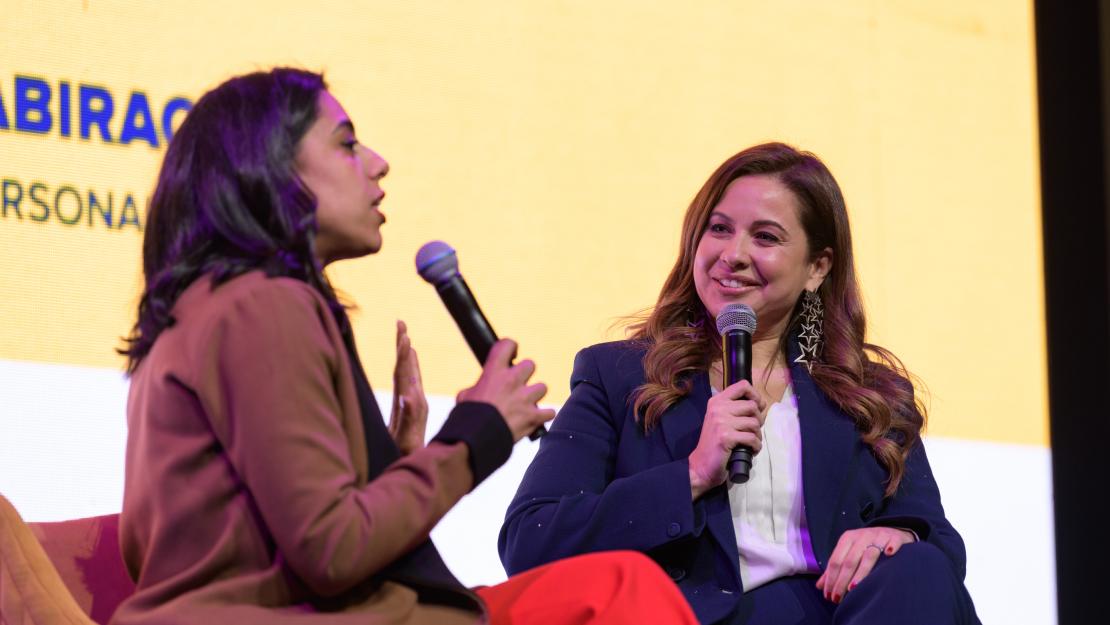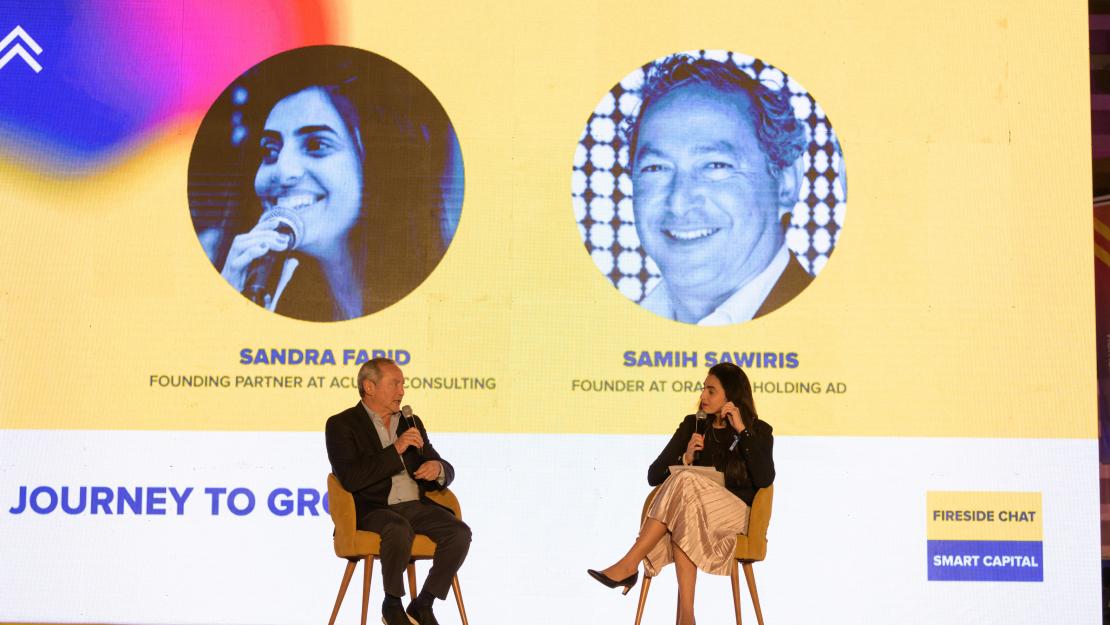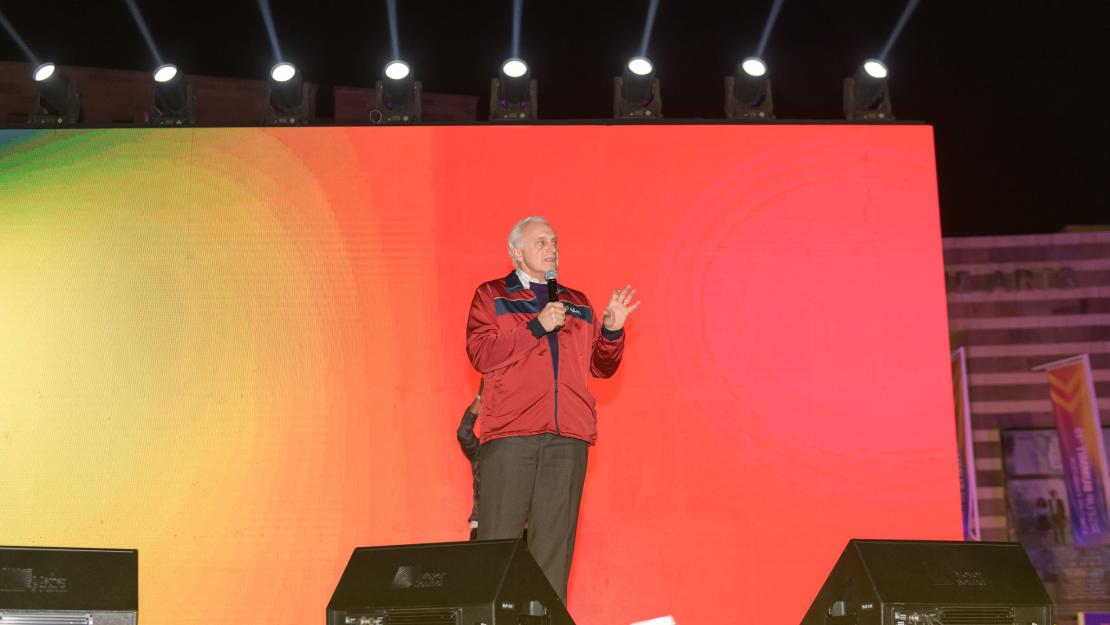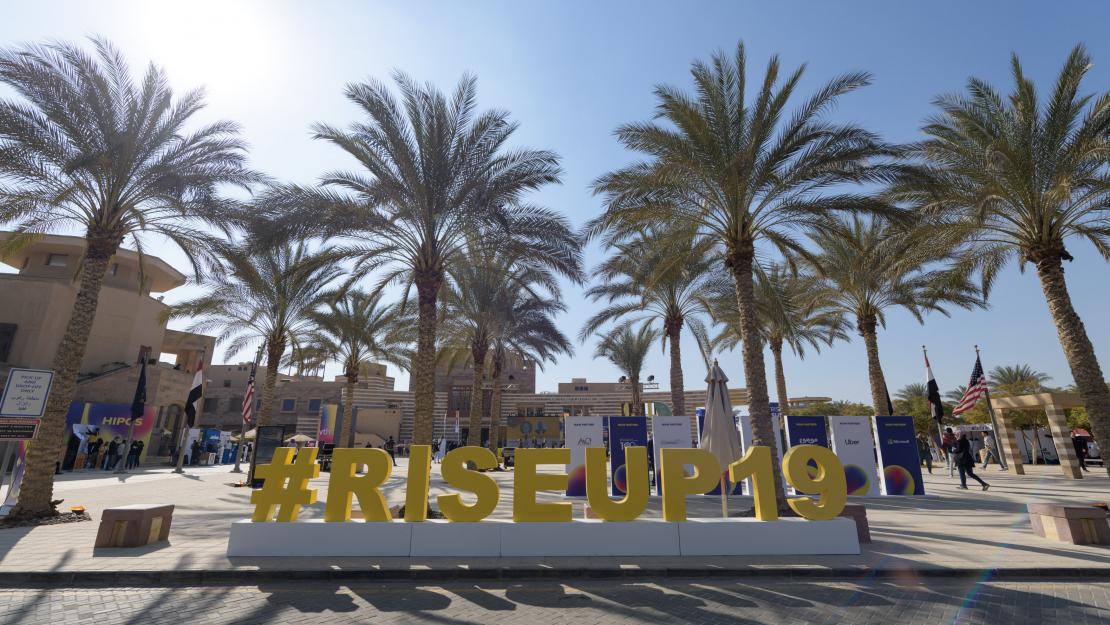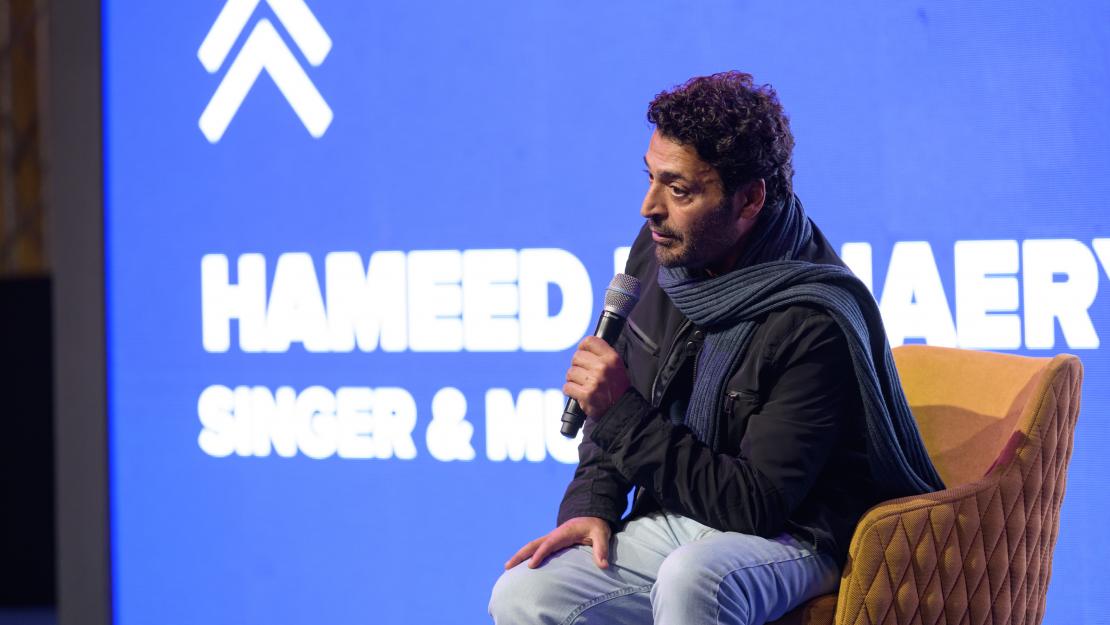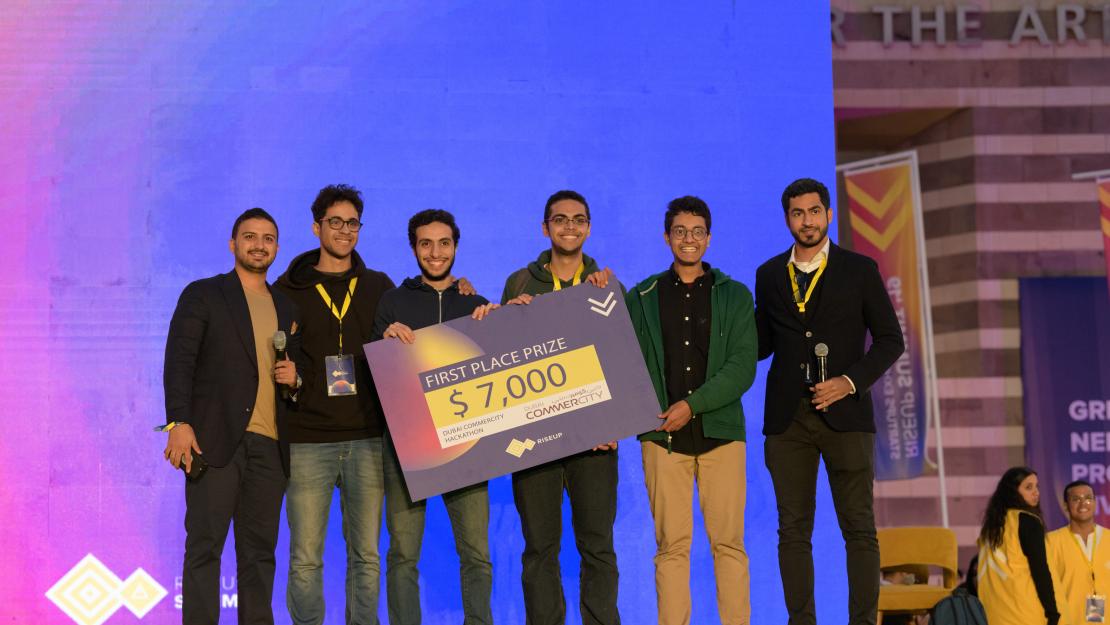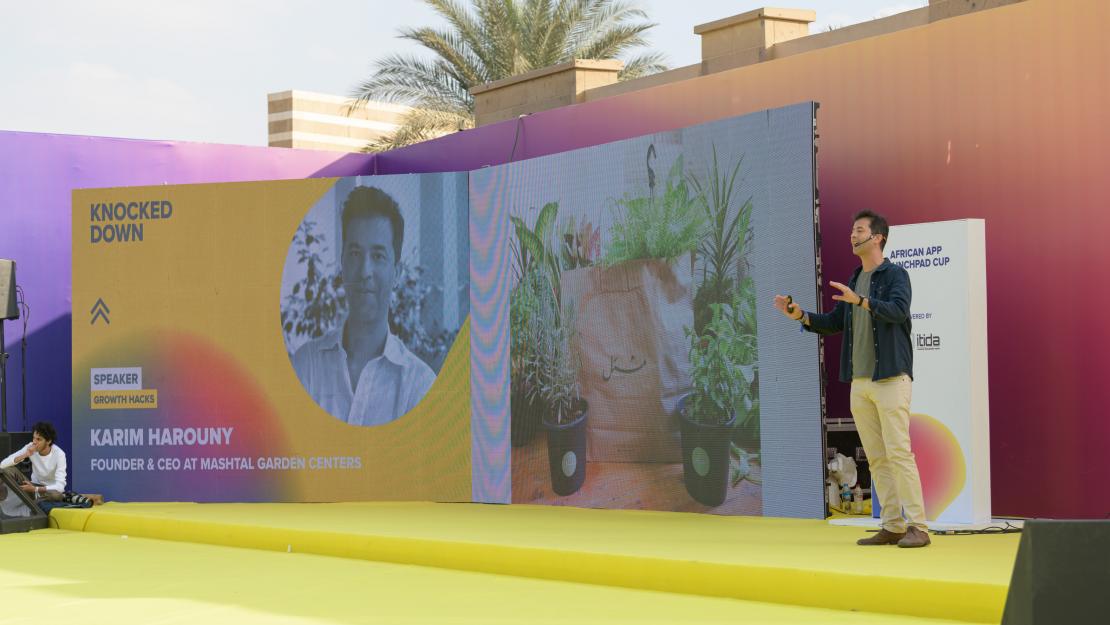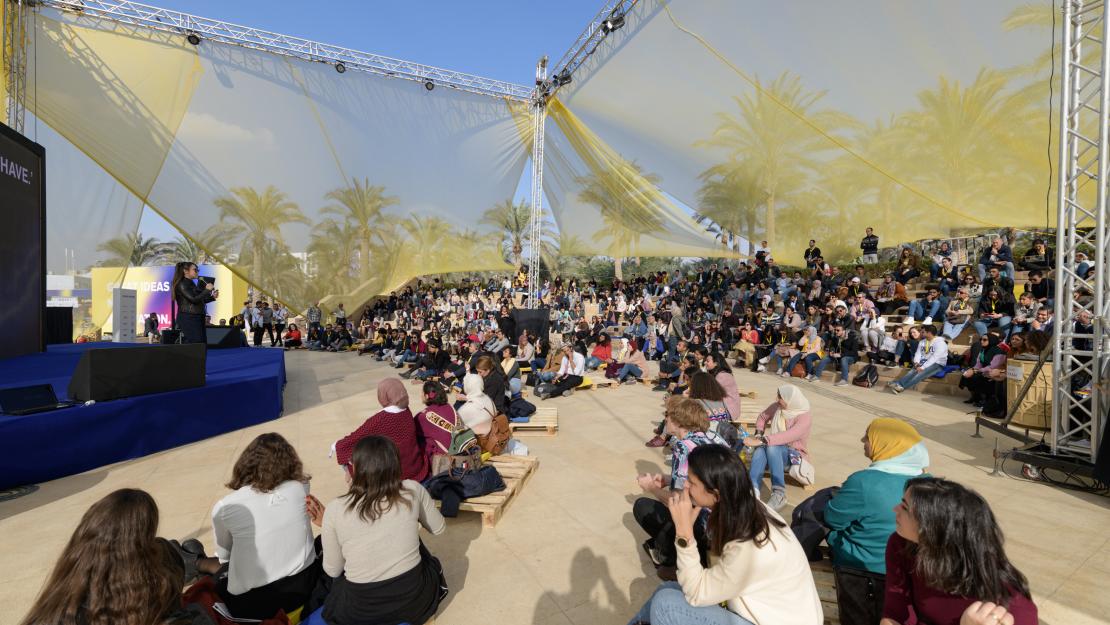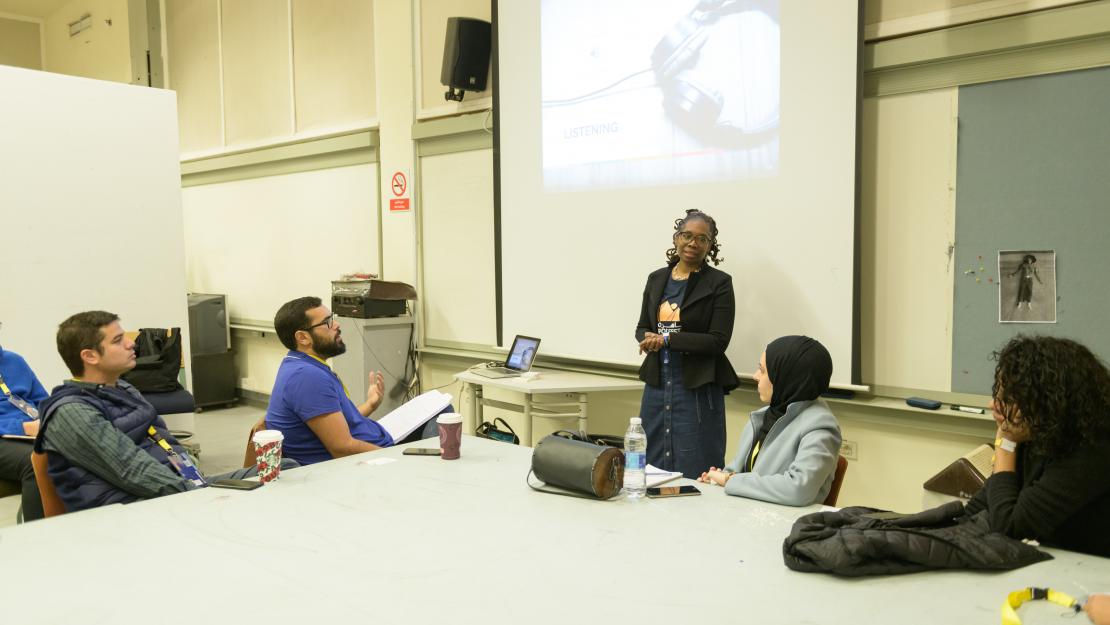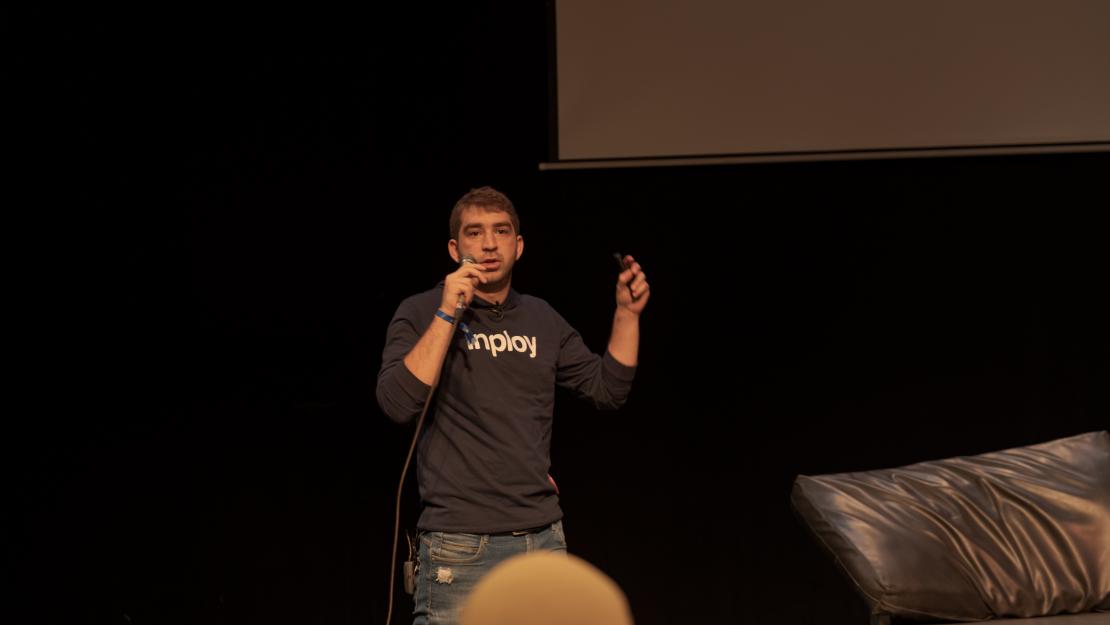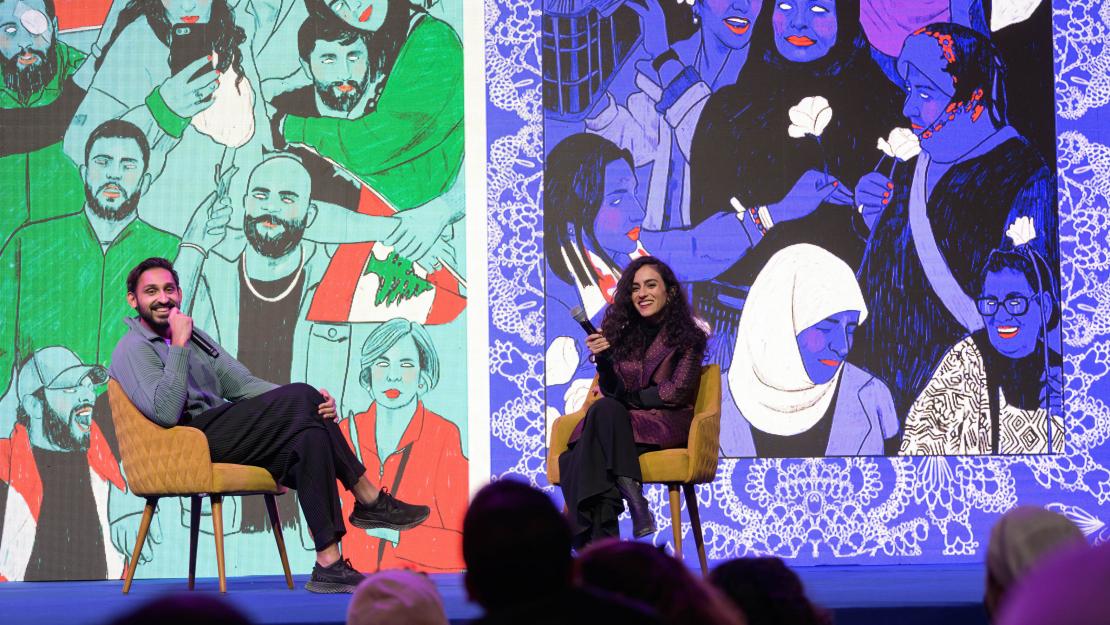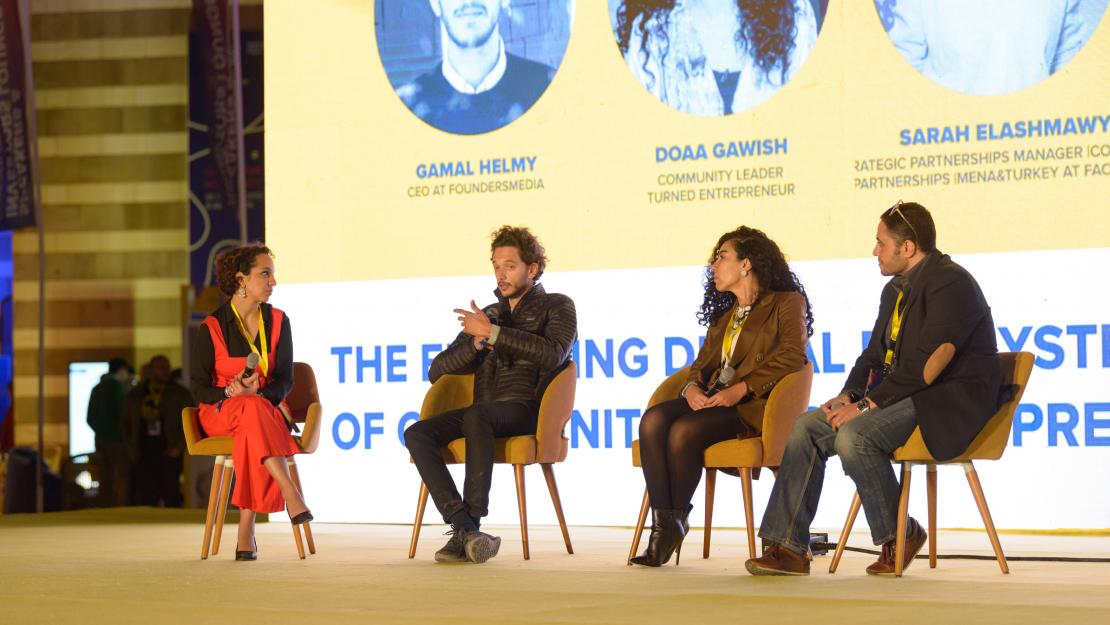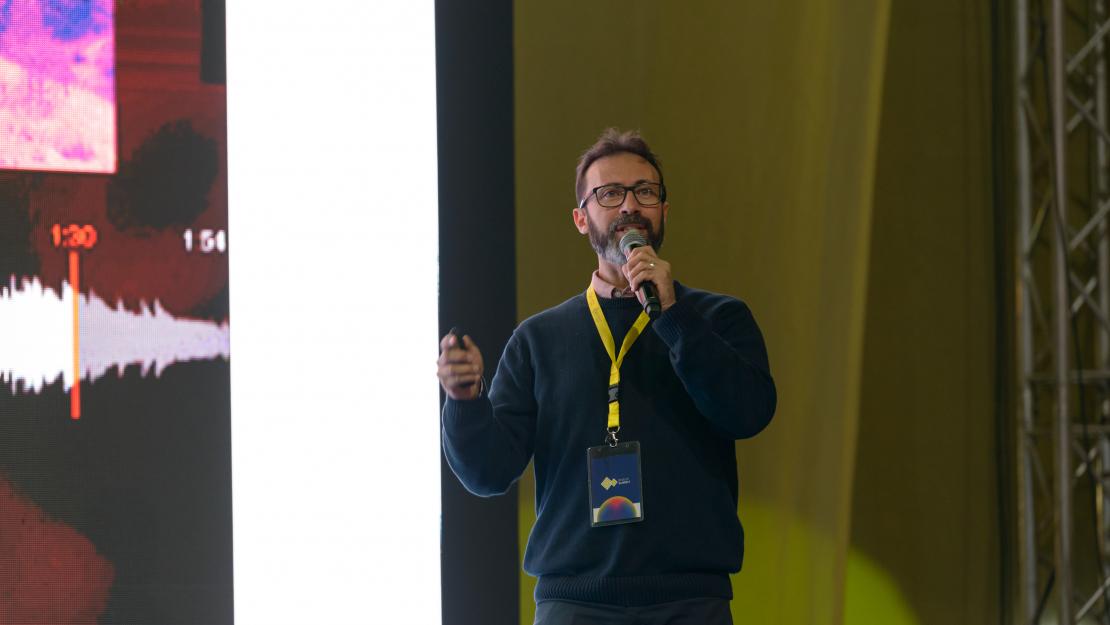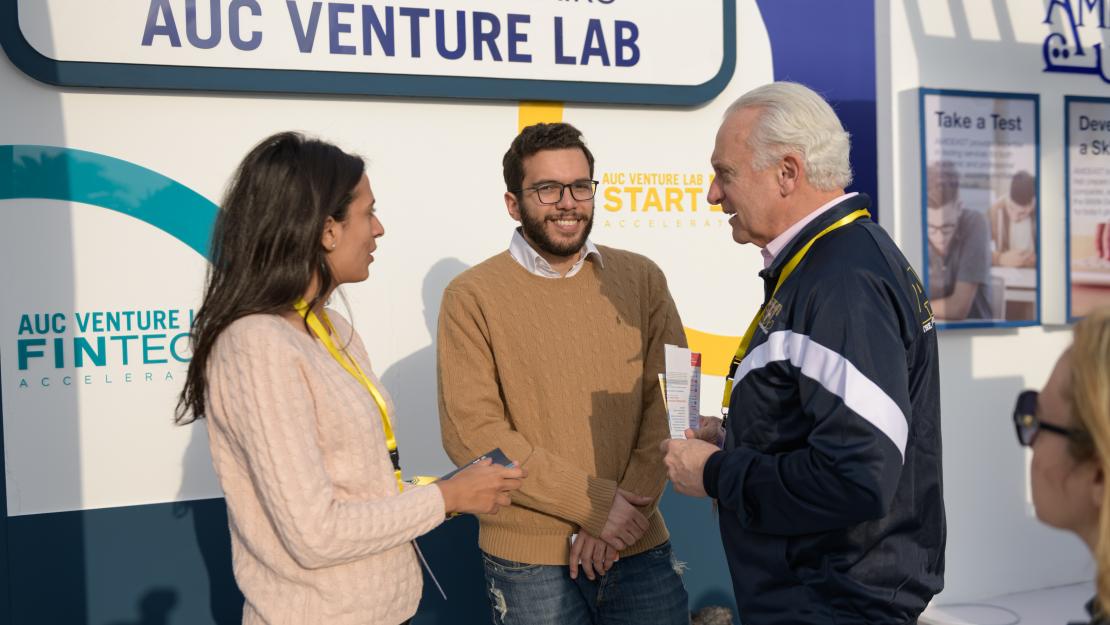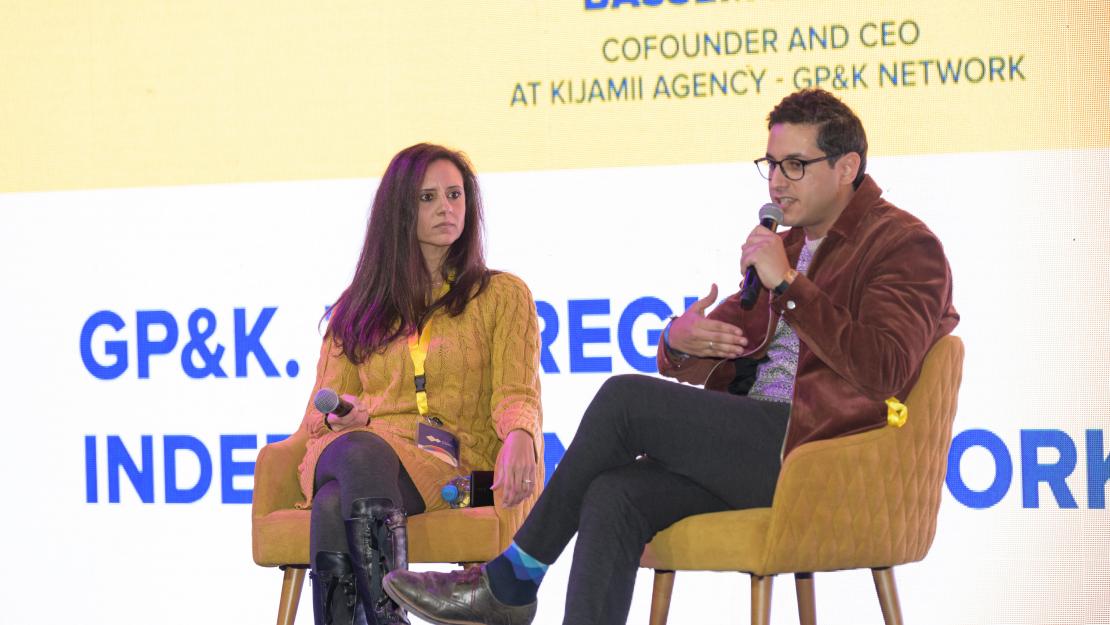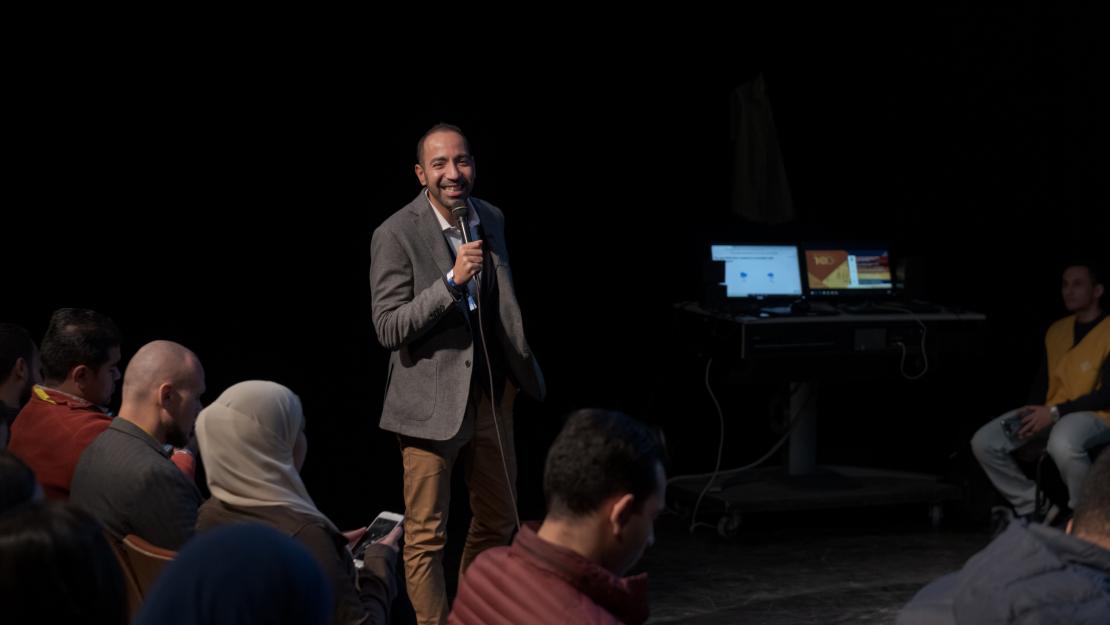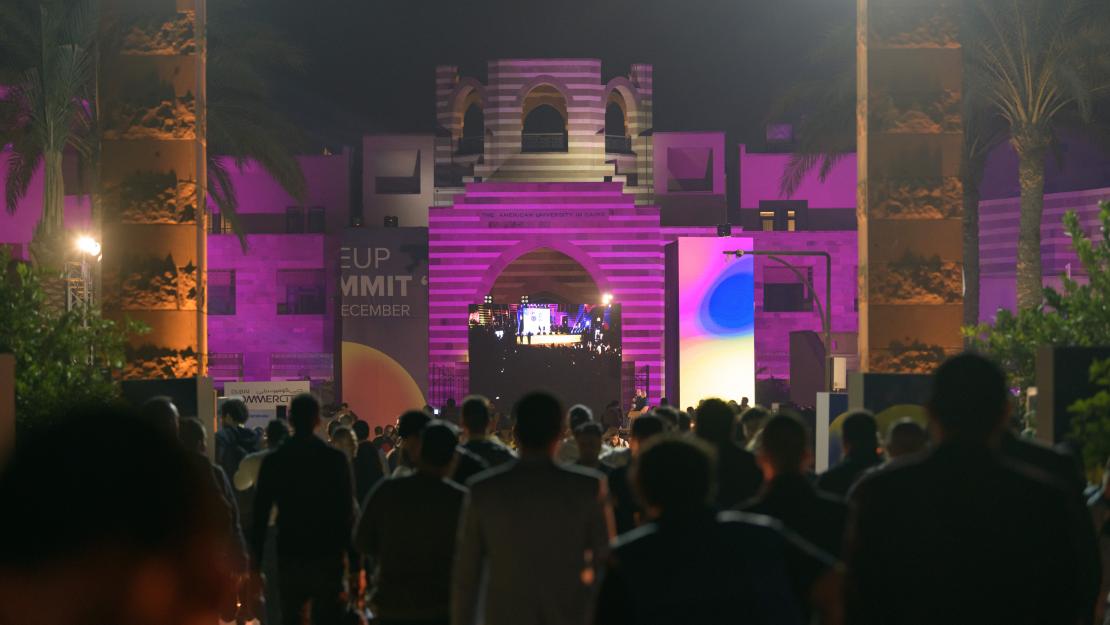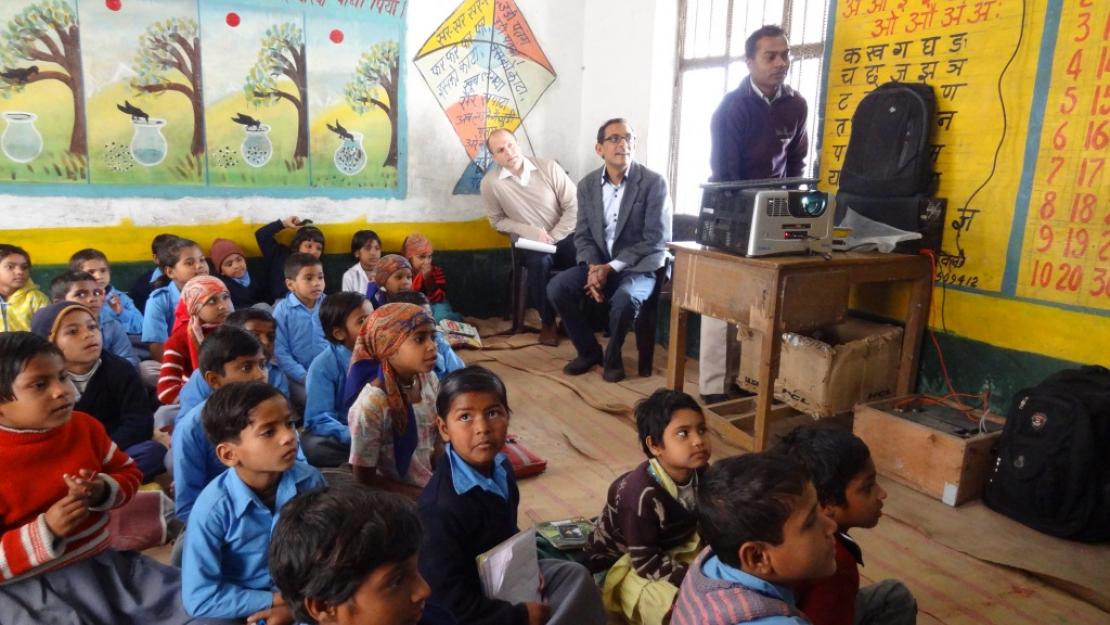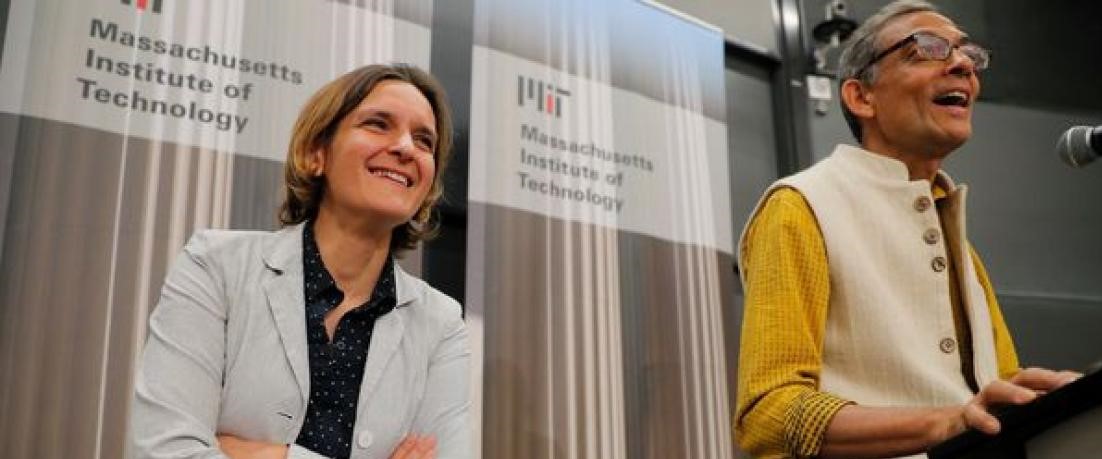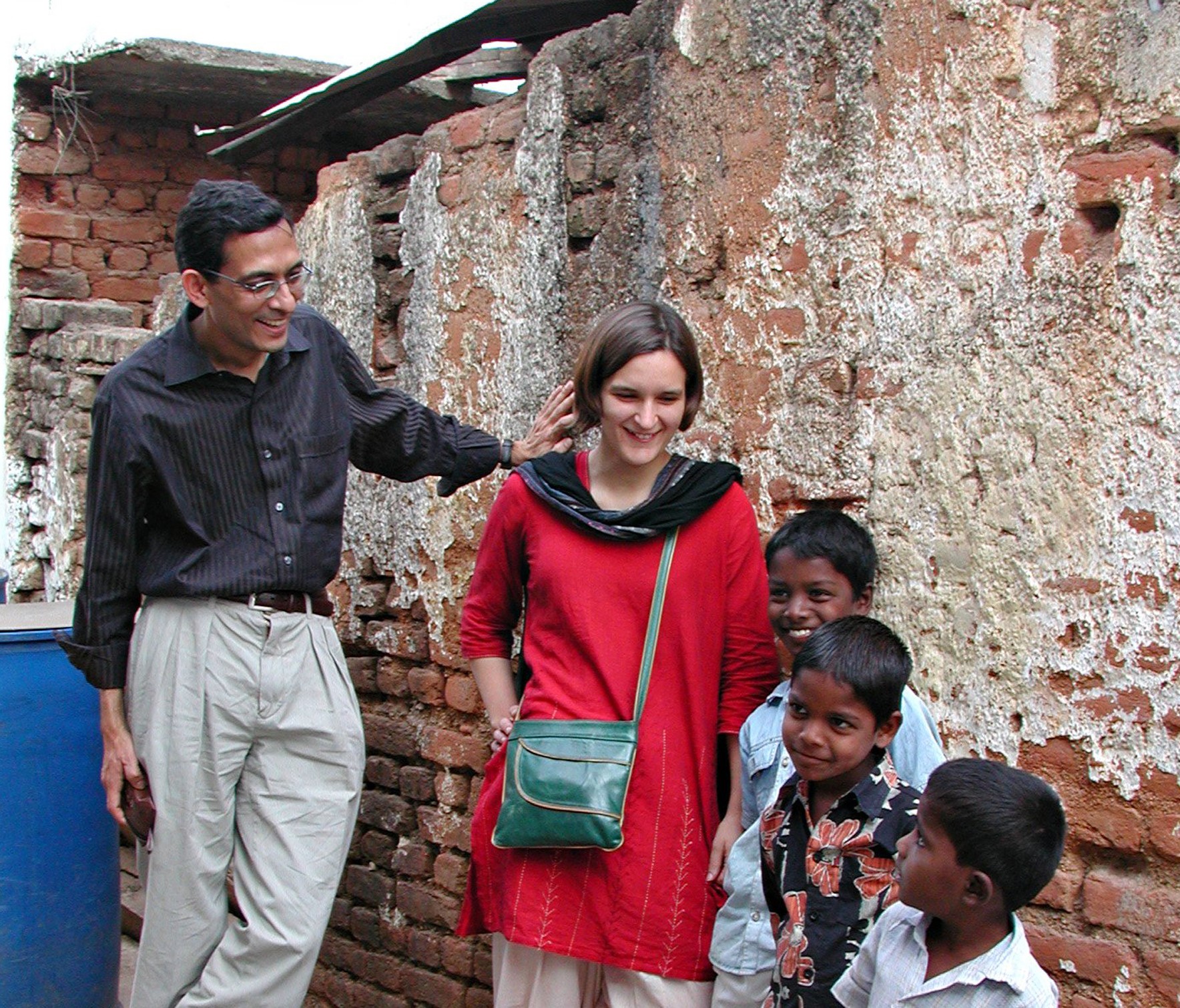Students Awarded in National, Global 2022 Map the System Competition for Project on Women
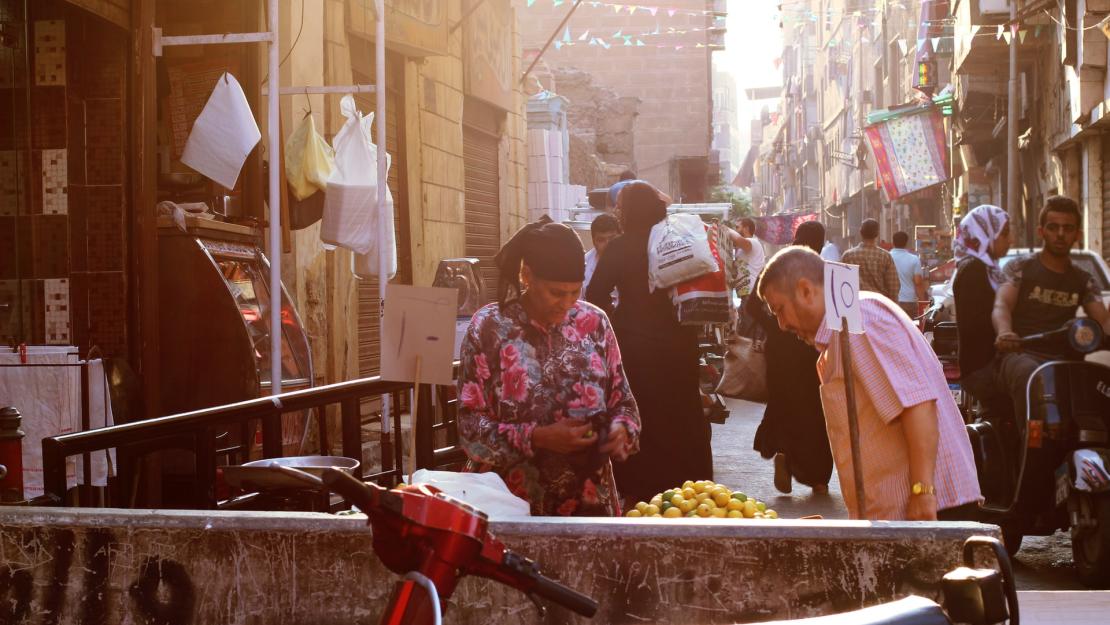
Five students from the AUC School of Business won first place in the national 2022 Map the System competition in late April, competing against six other teams comprising 30 undergraduate and graduate students. Their project was also named an Excellent Undergraduate Project in the global competition, which took place in the UK this spring.
Map the System is a global competition of the Skoll Centre for Social Entrepreneurship, delivered in partnership with educational institutions around the world, including AUC.
Reem El Saka, Jessica Botros, Alia El Soudany, Hana Hassan and Laila El Gindy took first place with their project, “The Social and Economic Challenges Affecting the Livelihood of Women in the Informal Sector in Cairo".
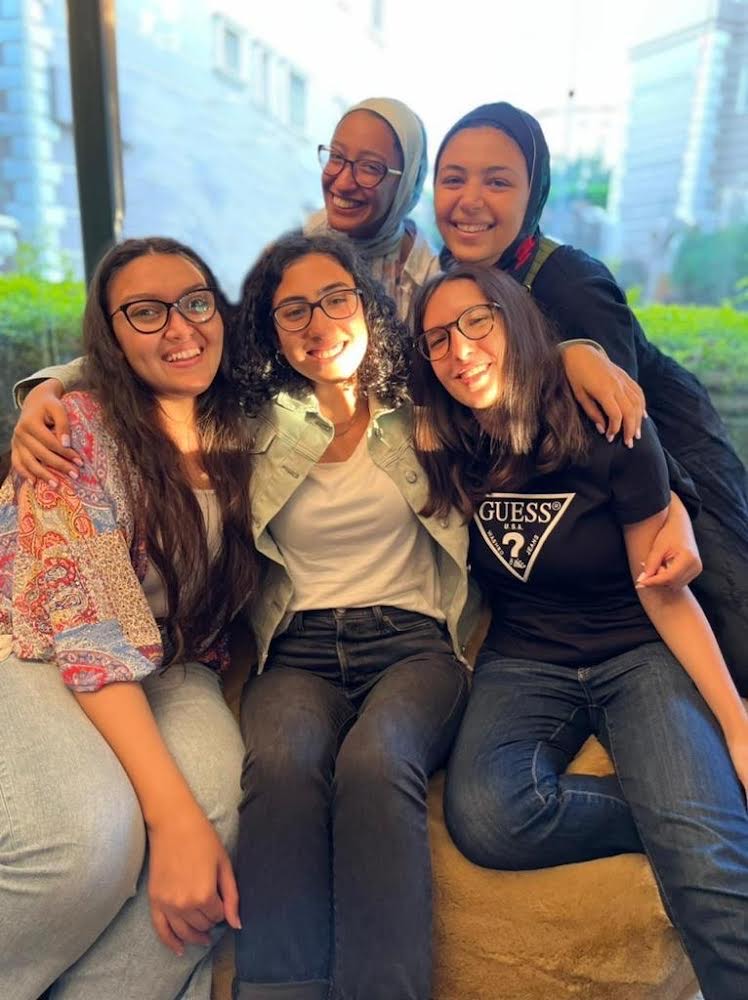
The competition challenges participants to explore social or environmental issues using systems thinking as a guiding approach.
“Map the System provided us with a mix of thrilling and exceptional learning experiences,” El Saka commented. “We were given the opportunity to research and systematically think of a challenge hindering our environment.”
Systems thinking itself involves analyzing issues by examining the interconnectedness of different factors within an issue, rather than focusing on a single factor.
Examining the experiences and perspectives of Egyptian women participating in the country’s informal sector, the group’s project identifies possible gaps and areas in need of improvement.
With limited data and literature available on the topic, the team was “eager to go the extra mile to grasp the elemental dynamics in the Egyptian system elevating this problem, by connecting with influential stakeholders and governmental entities,” said El Gindy.
“We wanted to approach the problem of the informal sector from an objective standpoint — one that does not antagonize women for causing spillover issues in society,” explained Hassan. “We trusted that digging deeper into the causes of such a problem could be more profound than what general research shows.”
Each group member echoed satisfaction with their experience with Map the System, from conducting research to presenting their findings.
“What was attractive about this specific competition was not the ultimate goal of reaching solutions, but rather interpreting the complexity of a broken system and portraying the absent evidence-based interventions which led to the failure of previous efforts combating the informal sector and inequality,” added Botros.
El Soudany was pleased that the competition prompted her to think deeply and critically about societal problems.
When the winners were announced, the group was overcome with joy. “All the sleepless nights paid off when we won first place,” a team statement read. “It was this moment where we felt like stepping into what a real milestone feels like.”
The team will move on to the global competition in June, where they will compete against 64 other finalist teams at the University of Oxford.
“Winning first place locally does not mean that our learning journey in the competition has ended, because a different, enlightening phase will follow,” said the statement. “We expect to live a remarkable experience under the true sense of responsibility of representing AUC.”
The team encouraged other AUC students to join major competitions such as Map the System.
“Just as we thought we couldn’t make it to where we are now, seizing every chance to grow personally and professionally is always worth the chaotic frustration of stepping out of your comfort zone. One must have the resilience and spirit to explore what is given and hidden — this will give you the key to making any new experience as fruitful as it could be.”
The competition encompasses the efforts of the AUC School of Business to create generations of sustainability-oriented market leaders to instigate change across markets.
This year, it was hosted by the John D. Gerhart Center for Philanthropy, Civic Engagement and Responsible Business of the AUC School of Business in coordination with the Assistant Provost Office for Innovative Learning Experience.

